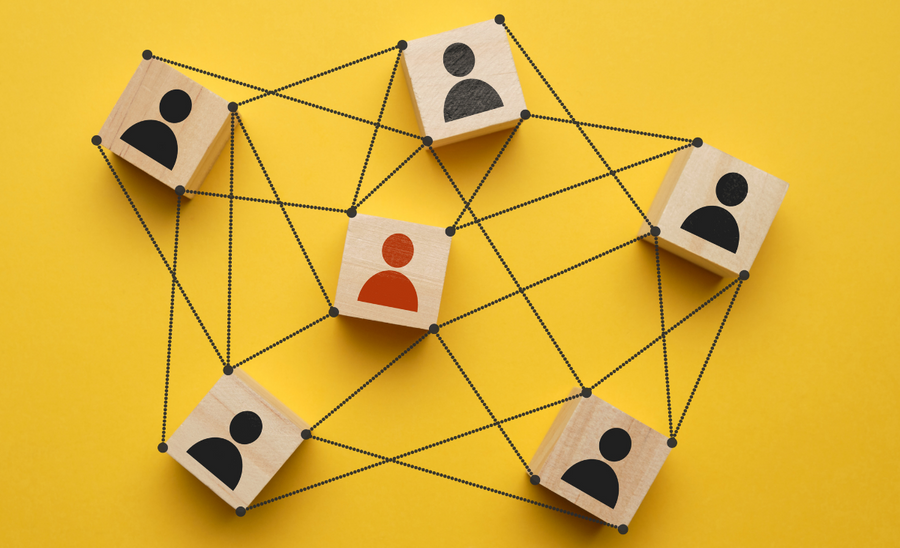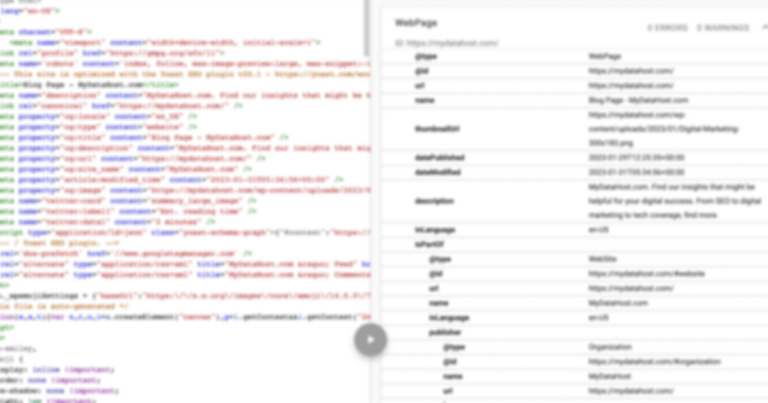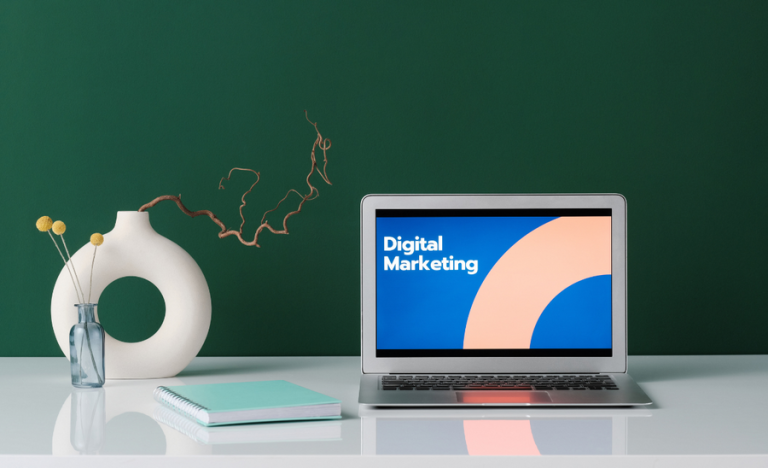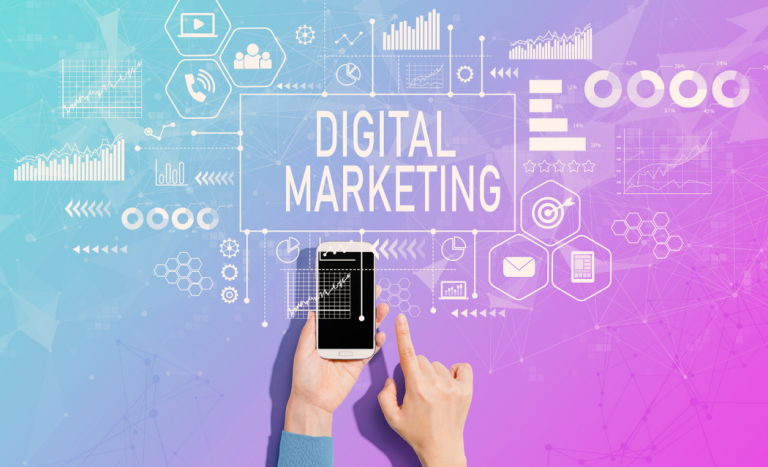If you are looking to start a digital marketing agency from scratch, there are several steps you can take to set yourself up for success. From defining your niche and conducting market research to developing your business plan, registering your business, building your team, creating your brand, developing your marketing strategy, acquiring and retaining clients, and scaling your business, there are many factors to consider when starting a digital marketing agency. In this article, we will explore each step in detail, providing actionable tips and strategies to help you build a successful digital marketing agency.
Step 1: Define Your Niche
Defining your niche is a critical step in starting a digital marketing agency. By choosing a specific industry or market segment to serve, you can differentiate yourself from other agencies and focus your expertise and resources. Your niche may be based on factors such as geography, industry, size, or type of service. Once you have identified your niche, you can conduct market research to understand your target audience, competitors, and market trends.
To build a successful digital marketing agency, it’s important to define your niche and focus on a specific area of expertise. This could be anything from social media marketing to search engine optimization, email marketing, content marketing, or web design. By focusing on a specific area, you can develop a deep understanding of your market and target audience, and differentiate yourself from other digital marketing agencies.
Choose Your Area of Expertise
Choosing your area of expertise is a crucial step in starting a digital marketing agency. It’s important to focus on the services that you can offer most effectively and that align with your skills and interests. This may include areas such as SEO, content marketing, social media marketing, email marketing, or paid advertising. By specializing in a particular area, you can establish yourself as an expert and differentiate yourself from competitors.
Research Your Market and Target Audience
Researching your market and target audience is a critical step in starting a digital marketing agency. You should start by analyzing industry trends, identifying your target audience, and understanding their needs, challenges, and preferences. This will help you create a marketing strategy that resonates with your target audience and differentiates your agency from competitors. By researching your market and target audience, you can also identify gaps in the market that your agency can fill and opportunities for growth.
Differentiate Yourself from Competitors
To succeed in a competitive industry such as digital marketing, it’s important to differentiate yourself from competitors. This may involve identifying your unique selling proposition (USP) and positioning your agency as the best solution for your target audience’s needs. You can differentiate yourself from competitors by offering unique services, delivering exceptional customer service, and establishing yourself as an industry thought leader. By differentiating yourself from competitors, you can establish a competitive advantage and attract more clients to your agency.
Step 2: Conduct Market Research
Once you have defined your niche, you will need to conduct market research to gain a deeper understanding of your target audience, industry trends, and competitive landscape. This may involve analyzing industry reports, conducting surveys, focus groups, or interviews with potential clients, as well as analyzing industry reports, market data, and competitor strategies and using online tools to gather data. By gaining insights into your market and target audience, you can make informed decisions about your business strategy, services, and pricing. Additionally, you can also develop a more effective business plan and marketing strategy.
Identify Your Target Audience
Identifying your target audience is a critical step in starting a digital marketing agency. You should start by analyzing industry trends, identifying your ideal customer profile, and understanding their needs, challenges, and preferences. This will help you create a marketing strategy that resonates with your target audience and differentiates your agency from competitors. By identifying your target audience, you can also develop tailored services and content that meet their specific needs and preferences.
Analyze Industry Trends
Analyzing industry trends is an important step in starting a digital marketing agency. You should stay up-to-date on the latest industry trends and changes in technology and consumer behavior. This will help you anticipate changes in the market and adapt your marketing strategy to stay ahead of the competition. By analyzing industry trends, you can also identify new opportunities for growth and innovation.
Research Your Competitors
Researching your competitors is a critical step in starting a digital marketing agency. You should start by analyzing your competitors’ services, pricing, marketing strategies, and customer feedback. This will help you identify gaps in the market that your agency can fill and opportunities to differentiate yourself from competitors. By researching your competitors, you can also learn from their successes and failures and identify best practices for your agency.
Step 3: Develop Business Plan for your Digital Marketing Agency
A solid business plan is a critical step for starting any digital marketing agency. Your business plan should outline your mission, goals, strategies, and financial projections. It should also identify your target market, competitive advantage, and unique selling proposition (USP). By developing a comprehensive business plan, you can create a roadmap for your agency and increase your chances of success.
Identify Your Mission and Goals
Identifying your mission and goals is a critical aspect of starting a digital marketing agency. Your mission statement should define the purpose of your agency and how you plan to serve your clients. Your goals should be specific, measurable, achievable, relevant, and time-bound (SMART). By setting clear goals and aligning them with your mission, you can focus your efforts and measure your progress.
When identifying your mission and goals, it’s important to consider your values and what sets your agency apart from others. You should also consider your target market and the types of services that will be most in demand. This will help you create a mission statement and goals that reflect your agency’s unique strengths and position in the market.
Some examples of mission statements for digital marketing agencies include:
- “To help businesses grow and thrive in the digital age through innovative and effective marketing strategies.”
- “To empower small and medium-sized businesses with the digital tools and expertise needed to compete in today’s marketplace.”
- “To provide high-quality, data-driven digital marketing services that drive results and exceed our clients’ expectations.”
Your goals may include targets for revenue, profitability, client acquisition, retention, and service delivery. You should also set goals for your team, such as hiring new staff, developing new skills, and improving employee satisfaction. By identifying your mission and goals, you can create a roadmap for your agency’s success and motivate your team to achieve great things.
Outline Your Strategies and Financial Projections
Creating a business plan for your digital marketing agency can help you outline your strategies and financial projections for the future. This can include defining your mission and vision, identifying your target market, developing a marketing plan, and setting financial goals for your business. By setting specific, measurable goals and tracking your progress, you can stay on track and make data-driven decisions to grow your business over time.
Identify Your Target Market and USP
Identifying your target market and unique selling proposition (USP) is critical to the success of your digital marketing agency. Your USP is what sets you apart from your competitors and makes you stand out in the crowded digital marketing space. It’s important to be clear on your target audience and the specific problems or pain points that you can help solve for them. This can help you tailor your services and marketing efforts to better appeal to your target audience and differentiate yourself from your competition. By clearly defining your USP and target market, you can create a strong brand identity and position yourself as a leader in the digital marketing industry.
Step 4: Register Your Digital Marketing Business
To legally operate a digital marketing agency, you will need to register your business with the appropriate government agencies. This may include registering your business name, obtaining a tax ID number, and obtaining any necessary licenses or permits. It’s important to consult with a legal professional or business advisor to ensure that you comply with all applicable laws and regulations.
Choose Your Business Structure
Choosing your business structure is an important step in starting a digital marketing agency. You may choose to operate as a sole proprietorship, partnership, limited liability company (LLC), or corporation. Each business structure has its own advantages and disadvantages, and you should choose the one that best aligns with your goals, risk tolerance, and tax situation. By choosing the right business structure, you can protect your personal assets, minimize your tax liability, and establish a clear legal and financial structure for your agency.
Register Your Business Name and Obtaining a Tax ID Number
Registering your business name and obtaining a tax ID number are important steps in starting a digital marketing agency. You should choose a unique and memorable name for your agency that reflects your brand and values. You should also obtain a tax ID number from the Internal Revenue Service (IRS) to identify your agency for tax purposes. By registering your business name and obtaining a tax ID number, you can establish your agency as a legitimate and professional entity.
Obtain Licenses and Permits
Obtaining licenses and permits is a crucial step in starting a digital marketing agency. Depending on your location and the type of services you offer, you may need to obtain licenses and permits from local, state, or federal authorities. For example, you may need a business license, a sales tax permit, or a professional license. By obtaining the necessary licenses and permits, you can comply with legal and regulatory requirements and avoid fines and legal issues. It’s important to research the licensing and permit requirements in your area and ensure that you obtain all necessary documents before you start offering services to clients. Additionally, you should keep track of expiration dates and renew your licenses and permits as needed to stay in compliance.
Step 5: Build Your Digital Marketing Team
As a digital marketing agency, your team will be the backbone of your business. You will need to recruit and hire talented professionals who have the skills and experience to deliver high-quality services to your clients. This may include hiring digital marketers, web developers, graphic designers, and other specialists. It’s important to develop a clear job description and hiring process, and to invest in the ongoing training and development of your team.

Recruit and Hire Talented Professionals
Once you have established your digital marketing agency, the next step is to build a team of talented professionals who can help you grow your business. You can start by identifying the roles and positions you need to fill, such as digital marketers, content writers, graphic designers, social media managers, and project managers. You can then recruit and hire individuals who have the necessary skills, experience, and qualifications to meet your requirements. To attract top talent, you can offer competitive compensation packages, flexible working arrangements, opportunities for growth and development, and a positive work culture.
Develop a Job Description and Hiring Process
To ensure that you attract and hire the right candidates, it’s important to develop a comprehensive job description that clearly outlines the roles, responsibilities, and qualifications required for each position. Your job description should be specific, detailed, and accurate to help you attract qualified applicants. Additionally, you should establish a clear hiring process that includes screening candidates, conducting interviews, and checking references. You can also use online job boards, social media, and industry networks to advertise your job openings and connect with potential candidates.
Invest in Ongoing Training and Development
To remain competitive in the digital marketing industry, it’s essential to invest in ongoing training and development for your team members. This can include attending industry conferences and events, taking online courses, and providing on-the-job training and mentoring. By investing in your team’s skills and knowledge, you can ensure that they stay up-to-date with the latest trends and best practices in digital marketing. You can also encourage your team to share their knowledge and collaborate on projects to foster a culture of learning and continuous improvement.
Step 6: Create Your Digital Marketing Agency Brand
Your brand is the face of your digital marketing agency. It’s how you present yourself to your clients and the world. To create a strong brand, you will need to develop a clear brand identity, including your brand name, logo, tagline, and brand personality. You should also create a website that showcases your brand and services, as well as social media profiles that reflect your brand’s personality and values.
Develop Your Brand Identity
Your brand identity is a crucial aspect of your digital marketing agency as it helps you differentiate yourself from your competitors and create a unique identity that resonates with your target audience. To develop your brand identity, you can start by defining your mission, vision, and values. You can then create a brand logo, tagline, and color scheme that align with your brand personality and messaging. Your brand identity should be consistent across all channels and touchpoints, including your website, social media profiles, business cards, and marketing materials.
Create a Website for your Agency

A website is a must-have for any digital marketing agency as it serves as your online presence and helps you showcase your services, portfolio, and team members. When creating a website, you should ensure that it is user-friendly, mobile responsive, and optimized for search engines. You can also include a blog section to share your insights and thought leadership in the digital marketing industry. Your website should reflect your brand identity and messaging and offer clear calls-to-action that encourage visitors to contact you or sign up for your services. You can either create a website yourself if you have the knowledge to do so. Or you can also opt for affordable and professional website development agency for creating your website.
Establishing Your Social Media Presence
Social media is an effective way to reach and engage with your target audience and build brand awareness. To establish your social media presence, you can start by identifying the platforms that your target audience uses the most, such as Facebook, Twitter, LinkedIn, or Instagram. You can then create profiles on these platforms and start sharing relevant and valuable content that resonates with your audience. You can also engage with your followers by responding to comments, asking for feedback, and running social media campaigns or contests. Your social media presence should reflect your brand identity and offer a consistent and cohesive message.
Step 7: Develop Your Marketing Strategy
To attract and retain clients, you will need to develop a comprehensive marketing strategy. This may include search engine optimization (SEO), social media marketing, content marketing, email marketing, and paid advertising. By developing a strong marketing strategy, you can increase your visibility, generate leads, and build your brand.
Identify Your Target Audience and Value Proposition
Identifying your target audience is critical to the success of your digital marketing agency as it helps you understand their needs, preferences, and pain points. You can start by creating buyer personas that describe your ideal clients, including their demographics, psychographics, and buying behaviors. You can then develop a value proposition that clearly articulates the unique benefits and value that you offer to your target audience. Your value proposition should be clear, concise, and relevant to your target audience’s needs and aspirations.
Leverage SEO and Content Marketing
SEO and content marketing are critical components of a successful digital marketing agency. SEO involves optimizing your website and content to rank higher in search engine results pages (SERPs), while content marketing involves creating high-quality, valuable content to attract and engage your target audience.
To leverage SEO and content marketing, you should start by conducting keyword research to identify the terms and phrases that your target audience is searching for. You can then use these keywords to optimize your website and create content that aligns with your audience’s interests and needs. This may involve creating blog posts, videos, infographics, whitepapers, and other types of content that demonstrate your expertise and provide value to your audience.

In addition to creating content, you should also focus on building backlinks to your website from other high-quality websites. This can help improve your website’s authority and increase your visibility in search engine results pages. By leveraging SEO and content marketing, you can attract more traffic to your website, generate leads, and establish your agency as a thought leader in your industry.
Utilize Social Media and Paid Advertising
Social media and paid advertising are other important components of a successful digital marketing agency. Social media allows you to engage with your target audience on popular platforms such as Facebook, Twitter, Instagram, and LinkedIn. Paid advertising allows you to target specific audiences with ads on search engines, social media platforms, and other websites.
To utilize social media effectively, you should start by identifying the platforms that your target audience uses the most. You can then create a social media strategy that includes regular posting, community engagement, and paid advertising. This can help increase your brand awareness, generate leads, and build relationships with your audience.
Paid advertising involves creating ads that are targeted to specific audiences based on factors such as age, gender, location, interests, and behaviors. You can use paid advertising to promote your agency’s services, drive traffic to your website, and generate leads. By utilizing social media and paid advertising, you can reach your target audience where they spend their time online and drive more business for your agency.
Step 8: Acquire and Retain Clients
To grow your digital marketing agency, you will need to acquire and retain clients. This may involve developing a sales process, networking with potential clients, providing high-quality services, and establishing long-term relationships with your clients. By focusing on customer satisfaction and delivering results, you can build a loyal client base and generate repeat business.
Develop a Sales Process
A sales process is a systematic approach to identifying, qualifying, and closing leads and prospects. To develop a sales process, you can start by creating a lead generation strategy that includes identifying your target audience, creating content that resonates with them, and promoting your services through various channels. You can then establish a lead qualification process that involves assessing the needs and interests of your leads and qualifying them based on their fit with your services. You can also develop a sales pitch that highlights the unique value and benefits of your services and uses persuasive language and data to convince prospects to choose you.
Network with Potential Clients
Networking is a powerful way to build relationships with potential clients and establish your reputation in the digital marketing industry. You can attend industry events, join professional associations, and participate in online forums and groups to connect with potential clients and industry influencers. You can also use your existing network of contacts, such as past clients or colleagues, to expand your reach and generate new leads. When networking, it’s important to be authentic, helpful, and respectful of other people’s time and interests.
Provide High-Quality Services
Providing high-quality services is the cornerstone of a successful digital marketing agency. To ensure that you meet and exceed your clients’ expectations, you can start by setting clear and realistic goals and expectations for each project. You can also establish a project management process that involves regular check-ins, progress reports, and feedback sessions. Additionally, you can provide ongoing support and communication to ensure that your clients are satisfied with the results and feel that they are getting value for their investment. You can also invest in ongoing training and development for yourself and your team members to keep up with the latest industry trends and best practices. By providing high-quality services, you can build a loyal client base and generate positive word-of-mouth referrals, which can help you grow your digital marketing agency over time.
Step 9: Scale Your Digital Marketing Agency’s Business
As your digital marketing agency grows, you will need to scale your business to meet the demands of your clients. This may involve expanding your team, diversifying your services, and increasing your marketing efforts. By scaling your business strategically, you can increase your revenue, profitability, and impact.
Expand Your Team
As your digital marketing agency grows, you may find that you need to expand your team to keep up with demand. When hiring new team members, it’s important to be strategic in your approach to ensure that you’re bringing on talented professionals who will help your agency grow. You may consider hiring specialists in areas such as social media, content marketing, SEO, or paid advertising to broaden your service offerings and provide more value to your clients.
Diversify Your Services
Diversifying your services can also help your agency grow and appeal to a wider range of clients. For example, you may consider adding services such as email marketing, video production, or web development to your service offerings. This can also help you retain existing clients and attract new ones.
Increase Your Marketing Efforts
Marketing your agency is critical to attracting new clients and growing your business. As you start to see success, it’s important to reinvest some of your profits into marketing efforts to keep the momentum going. This may include paid advertising, content marketing, social media marketing, or attending industry events. By consistently promoting your agency and its services, you can build your brand and generate new leads for your business.
Conclusion on How to Start a Digital Marketing Agency from Scratch
Starting a digital marketing agency from scratch can be a challenging and rewarding experience. By defining your niche, conducting market research, developing your business plan, registering your business, building your team, creating your brand, developing your marketing strategy, acquiring and retaining clients, and scaling your business, you can build a successful digital marketing agency. Remember to stay focused, be persistent, and prioritize customer satisfaction, and you can achieve your goals and make a positive impact in the digital marketing industry.









